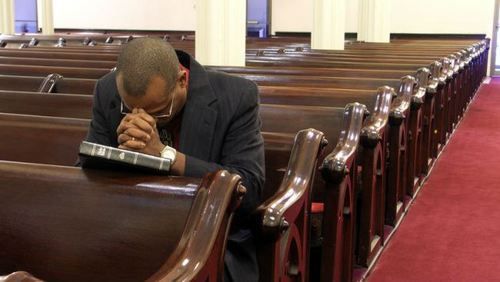Feeling Burnt Out? Why not Focus on Growth?

Last week at OnFaith, we featured a story from pastor J.R. Briggs titled “Why Half of All Pastors Want to Quit Their Jobs.” Upon further fact checking, we found that titular statistic is… a little spurious, at best a little oversimplified. Still, there’s no denying it: Being a pastor is tough, and no one’s immune to the frustrations and burnout associated with the position.
Briggs sums up the core of the problem as follows:
Why do we believe [lies about the ministry]? Because in our time, the definition of ministry “success” has been professionalized to the point that it mirrors mainstream American culture’s definition of success. We celebrate and perpetuate metrics of success borrowed from the pages of business management textbooks. And these metrics of success are chewing up and spitting out pastors at an alarming rate.
He has a point. Churches are no longer humble friars doting over their flocks. Life is infinitely more complex and expensive than it’s ever been, and running a thriving church requires a lot of skills that many pastors lack when they enter the ministry. Like any other job, pastors are forced to juggle their day-to-day responsibilities (leading their communities) with larger, longer-term goals. As Briggs notes, some people saw this coming:
Thirty years ago, pastor and author Eugene Peterson wrote with prophetic clarity that pastors are expected to “run churches rather than care for souls.” Peterson was already concerned that pastors had become obsessed with keeping the customers happy and luring other customers away from the other religious shops down the street.
Briggs doesn’t really offer much of a solution – he decries this as a bad thing, and then reminds the reader that pastors are people too, susceptible to the same frustrations and insecurities as the rest of us.
Instead, allow us to go ahead and offer a solution:
Why not make church growth a focus, not a burden?
Yes, yes, a pastor’s place is with his people. But, in terms of preserving one’s sanity, what has longer-lasting, more easily achievable benefits? There are hundreds of proven resources out there for growing a church, and the goals and milestones are easily determined and measured. The same can’t be said for the ability to successfully counsel an addict, a criminal, etc.
Consider, too, what a church really is – a community of like-minded people. When you grow communities, you strengthen them. You help give it the resources it needs to help itself. The greater the strength of the community and its safety net, the more pastors are free to do what they do best: Provide spiritual guidance.
The juggling act will never completely go away – pastors will always have to be both administrators and spiritual leaders. All we’re saying is that when times get tough, when you start to feel a little too human, consider turning an eye towards a goal you can more easily quantify and achieve: Church growth. They don’t have to be absurd goals, either. Ask yourself, “How can I add one family, or even one person, to my church over the next month?”
Remember, it doesn’t have to be all dollars and cents, phone calls and fundraisers, either. Sometimes it’s about getting out into your community, meeting new people and making your presence known. Sometimes, that kind of growth is all it takes to renew your sense of purpose.

